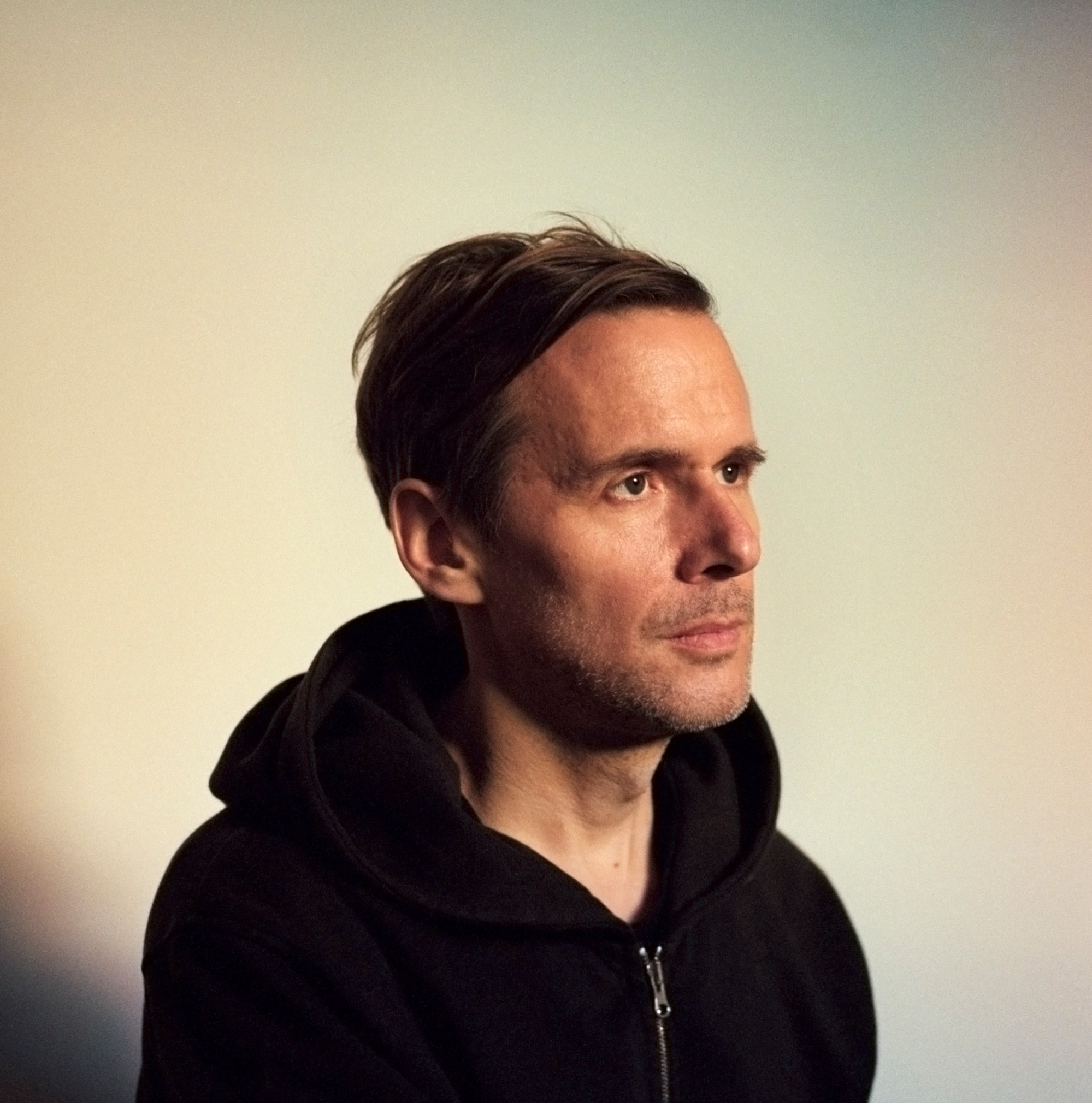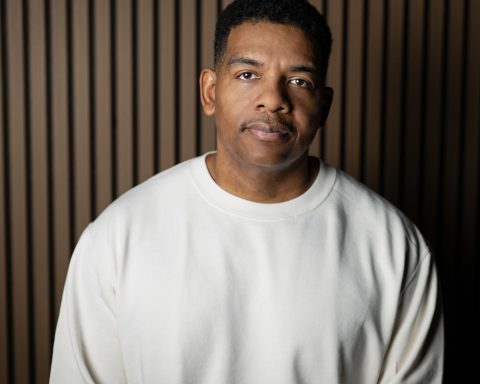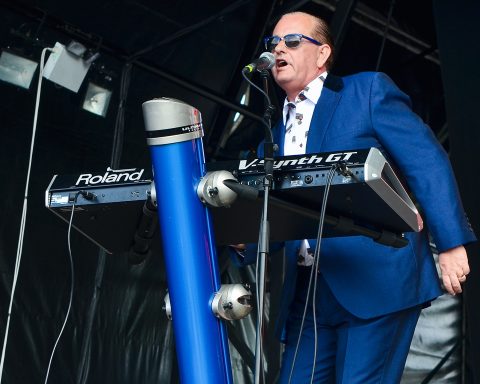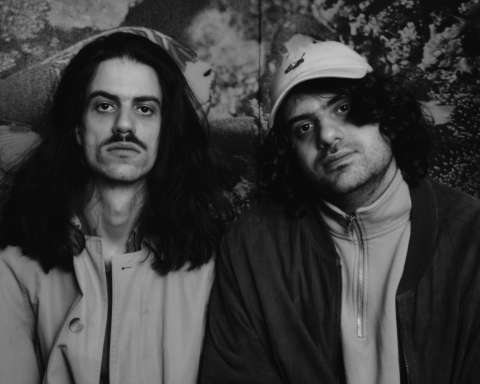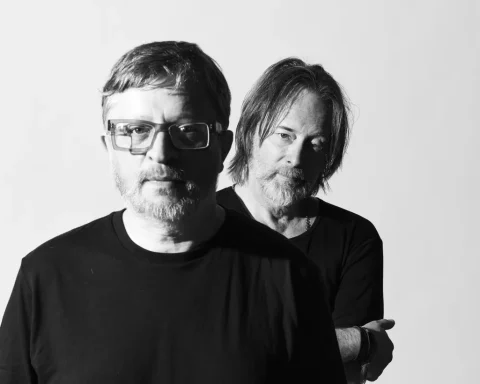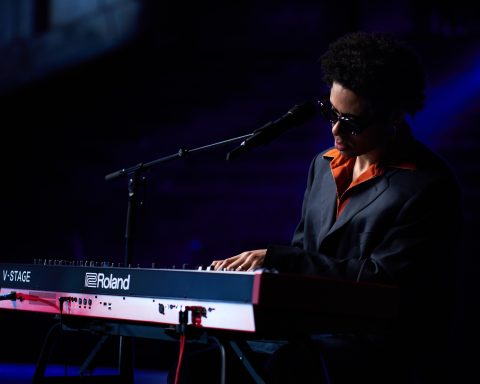It’s not easy being an experimental electronic music icon. Or, in the case of Chris Clark, perhaps it’s too easy. His restless musical mind and formidable intellect continue to lead him to fresh sonic pastures. Even after acclaimed albums and a soundtrack remixed by Thom Yorke, Clark continues to push himself. For Playground In A Lake, his 9th album, Clark flipped his workflow yet again. Out on Deutsche Grammophon, the release blends modern classical with electronics. It’s awash with strings, cavernous atmospheres, even socially-distanced choirboy vocals.
A Fresh Approach
The inclusion of strings both instigated and shaped the creative journey this time out. “I went to Budapest with a friend, and we recorded these strings,” explains Clark. He’s speaking from Canberra, Australia, his wife’s home country, where he splits his time with the UK. “We both came back going, ‘All I want to do is write for strings.’ That tends to happen when you add a new color to your pallet.”
Eventually, he struck a balance between the familiar and the unknown. “It’s about fusing it coherently to what I’ve made before, a large body of work with synthesizer music and electronics. That’s where it gets interesting.”
Ever self-critical, Clark insists he was aware of the inherent challenges of this cross-pollination. “Fusing orchestra to electronics can go so wrong,” he says. “But if you get it right, it’s like nothing else.” Again, Clark wanted to avoid taking the obvious path. “Writing purely electronic music, the stakes feel too low to me.”
Climate as Metaphor
The stakes behind the record’s storyline couldn’t be higher. Clark describes it as being “about real climate change but told in mythological terms.” 2021 certainly feels like an appropriate moment in our world’s history for such an allegory. Still, the composer insists it’s not that simple.
"Fusing orchestra to electronics can go so wrong, but if you get it right, it's like nothing else."
“It started as this very internal record using climate as a metaphor, a springboard to the sonic world,” he explains. “It’s more like sort of an extinction myth, which we’ve had since the Greeks.”
Throughout, the blend of strings and the textures evoke a brooding, existentialist mood. “It’s not too on the nose because the music’s mostly instrumental. But it sort of encapsulates my fears around climate catastrophe.”
Influences and Ideal Circumstances
The press release for Playground In A Lake references Scott Walker, dark folk, heavy ’70s synth-style, musique concrète, and classical. Indeed, all those elements are present, yet the whole record exists in its own space. Clark describes an ideal listening experience for the album, one that mirrors his creative process.
“From start to finish on a walk with headphones,” he says. “I live on this massive hill, so it’s a forty-five-minute walk to the supermarket and back. I’d always listen to the new mixes.”
The Voice of Youth
Playground In A Lake goes from the stark “Citrus” to “Disguised Foundation” which drifts through otherworldly soundscapes. Still, one of the most stirring elements is the voice of a twelve-year-old named Nathaniel.
“I wrote these lyrics that sounded terrible when I sang them. Content that’s confrontational can sounds cheesy when an adult sings it. Put it in kid’s voice and it’s different.” He also praises his young collaborator’s diligence. “Nathaniel was great to work with. He’s a real perfectionist. I like that in musicians—when they don’t give up the power.”
"There's also a ton of music that I write that’s very much in the vein of mad electronics and techno. I never want to jettison that."
A Classical Home
After years with Warp Records, partnering with revered classical label Deutsche Grammophon may seem a dramatic change. Clark insists it was a gradual process.
“The A&R guy Christian is an amazing pianist, so he gets props from me for being able to rip,” Clark jokes. “We’ve been in touch since The Last Panthers, which they liked. Then they asked me to do a Max Richter remix. So, it might seem like a sudden shift, but it’s been in the cards for at least five years.”
Of course, the orchestral sound of the album makes the pairing obvious. “They’re great with classical music and there’s a strong element of that on the record.” Still, while Clark appreciates the label’s roots, he’s no purist himself. “If people think I’m some sort of classical music boffin, I’m not at all. I just like Bach, 20th-century stuff, and that sort of thing.”
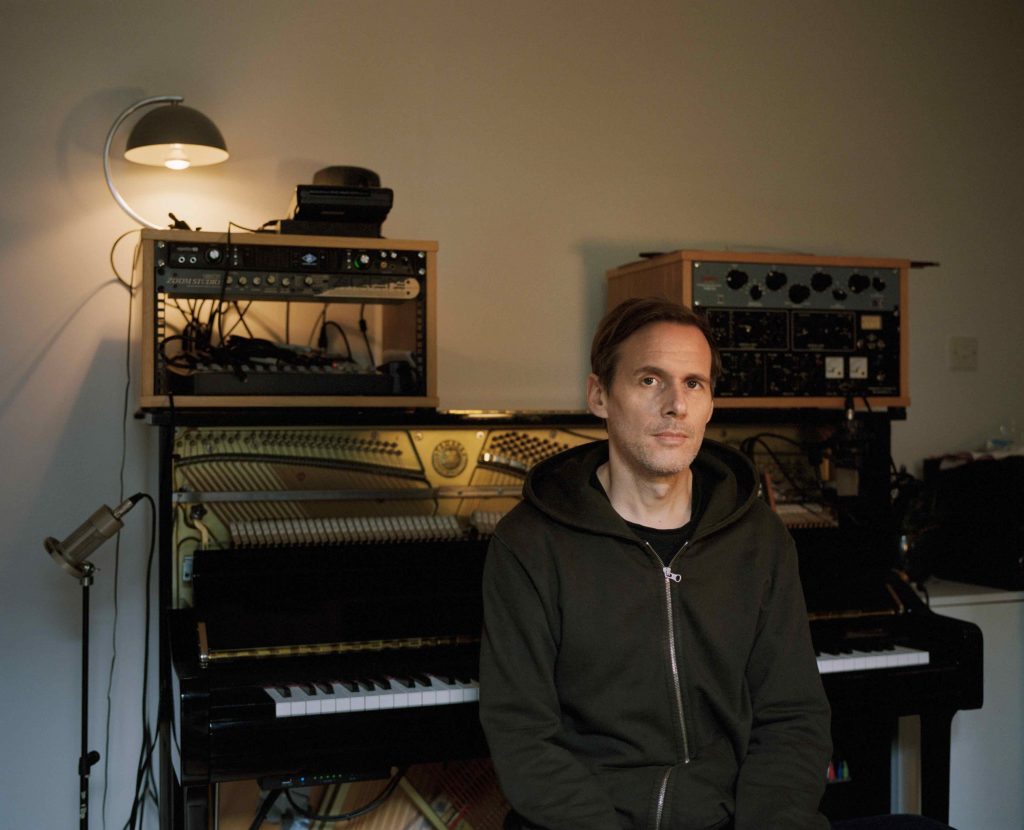
Electronic Artist to Composer: A Varied Career
While Clark’s written prodigiously for TV and games, he chooses not to isolate the disparate aspects of his musical output. “I think scoring films influences my albums and vice versa,” he says. “My scores feel like studio albums in a way, because I don’t want to release a series of cues from the show. I try and make them Clark records.”
Despite highbrow projects, the multifaceted artist isn’t done with electronic music—not by a long shot. “There’s also like a ton of music that I write that’s very much in the vein of mad electronics and techno. I never want to jettison that.”
Always committed to taking the more challenging artistic road, Clark refuses to gauge one style as better than another. “It would be a diss to electronic music to say I’ve discovered real music now,” he says. “We need to question those categories.”
“It started as this very internal record using climate as a metaphor. But it sort of encapsulates my fears around climate catastrophe.”
Cruel Nature
In his own words, he describes the album’s titular lake as, “Still and serene, so beautiful you want to swim across it. Calm on one level, but sinister on another.” In typical Cark fashion, he’d done quite a bit of thinking about our relationship with nature. “If I’m in a good mood, I can go for a walk in a forest or look at some beautiful mountains and feel completely awestruck, like it’s a nurturing place.”
There’s a darker aspect as well. “If you’re feeling isolated and alone and go for a walk, it can feel cruel and heartless and indifferent to your fate.”
In the end, that may indicate the difficult truth at the heart of Playground In A Lake. “We’re all we’re part of the natural world,” Clark admits. “But we’re also set against it.”
